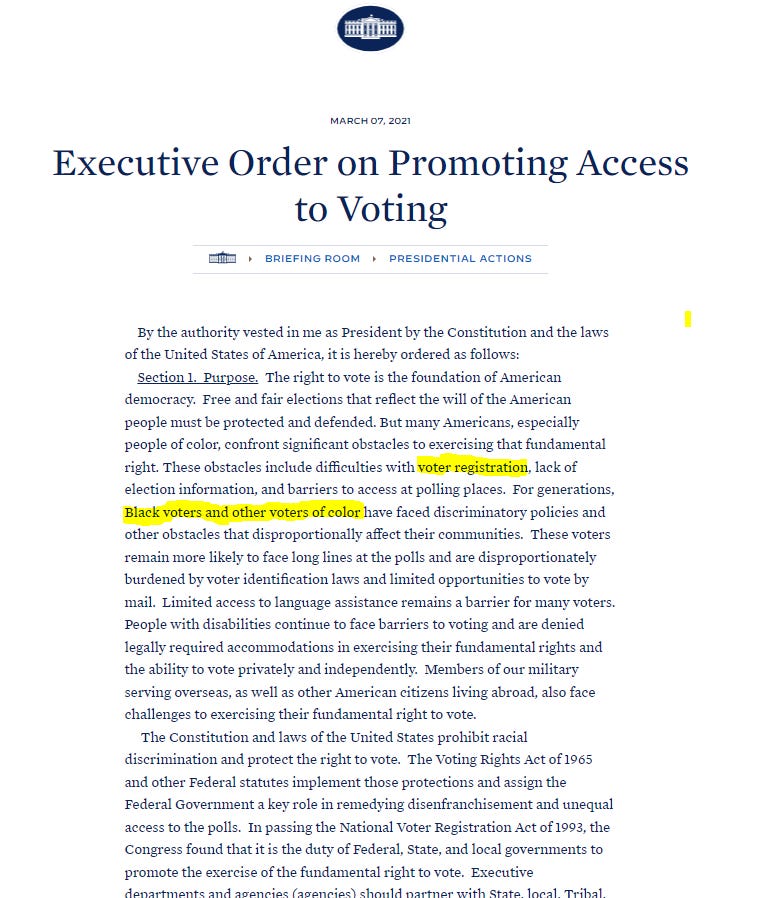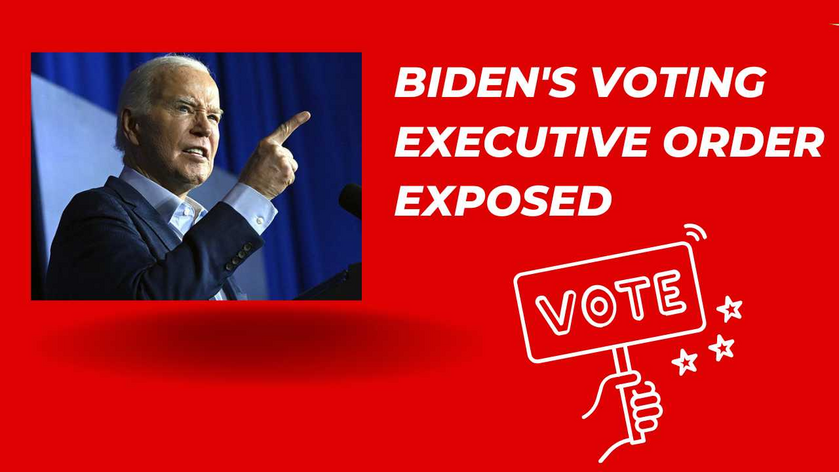WASHINGTON D.C. - The Oversight Project has acquired copies of various federal agencies' previously hidden plans for executing President Joe Biden's Executive Order 14019, which mandates federal agencies to mobilize historically Democratic groups to vote. This discovery, concluded the Heritage Foundation's government watchdog Oversight Project, signifies potential "election interference" that could have significant implications for the upcoming elections.
"The last election was decided by less than 40,000 votes in the determinative swings," said Mike Howell, executive director of the Oversight Project, to Blaze News.
I walked away from the mainstream media because I wanted to fight their narratives and bias. Help me to keep my journalism independent.
Howell pointed out that Demos, a left-leaning think tank whose 2020 recommendations appear to have inspired EO 14019, boasts that the plan could generate 3 million new voter registrations annually, although Howell suspects the actual number could be much higher.
The Oversight Project has done more than just identify the problem. They have exposed various agencies' strategic plans and identified three significant steps states can take to counter or "frustrate" these efforts.

Months after taking office, Biden issued EO 14019, asserting that minorities, particularly Black Americans, face "significant obstacles" to voting. According to the preamble, they are "disproportionately burdened by voter identification laws and limited opportunities to vote by mail." Greater turnout from this group would likely benefit Biden, given that 83% of Black voters currently support or lean towards the Democratic Party, according to the Pew Research Center.
The executive order directs federal agencies to "consider ways to expand citizens' opportunities to register to vote and to obtain information about, and participate in, the electoral process." This directive includes federal agencies using their resources to facilitate registrations and mass mail-in ballot applications, and providing space on agency premises for approved NGOs and state officials to achieve these goals.
The Oversight Project summarized the situation: "On March 7, 2021, Biden signed Executive Order (E.O.) 14019 directing every federal agency to get out the vote for his reelection campaign. This whole-of-government approach is partnering with exclusively left-wing dark money groups."
Concerns have been raised about the lawfulness and neutrality of these efforts, particularly whether voters in traditionally right-leaning areas will be targeted with the same enthusiasm as those in Democratic strongholds. The administrative state has shown a left-leaning bias, with 95% of campaign donations from 14 government agencies going to Hillary Clinton ahead of the 2016 election, and the majority of federal employees donating to the Democratic candidate in 2020.
The Oversight Project also pointed out issues with the approval process for NGOs and state officials involved in implementing the order, noting a lack of transparency and evidence of a partisan approach.
For instance, a July 12, 2021, "Listening Session" on the order's implementation involved the Biden DOJ, various federal agencies, and liberal groups like the ACLU, the Anti-Defamation League, Black Votes Matter, the Southern Poverty Law Center, the Open Society Policy Center, and the NAACP. No identifiable Republican, independent, or politically conservative individuals were present.
Furthermore, the U.S. Small Business Administration announced an agreement with the Michigan Department of State to execute Biden's order in Michigan, where initiatives in 2020 boosted Biden. Michigan Secretary of State Jocelyn Benson, a Democrat criticized for altering absentee voting rules in 2020, will play a significant role.
Despite requests for greater transparency, the Biden Administration and Congressional Democrats have resisted efforts to provide detailed information about EO 14019. The Oversight Project has filed around 1,600 FOIA requests related to the order and recently sued the Small Business Administration.
The newly released documents reveal the lengths federal agencies are going to mobilize voter turnout, including guaranteeing federal employees four hours of paid administrative leave per election to vote or participate as poll watchers.
One significant proposal involves automatic voter registration through the Free Application for Federal Student Aid (FAFSA), potentially affecting 20 million Americans.
The Oversight Project will continue to reveal more documents related to "Biden Bucks" as they become available.
When asked if Congress could take action, Howell stated, "Congress missed their shot. Ship sailed. They funded this." However, states could still intervene by challenging the order's application to presidential elections, raising complaints about partisan activities, and scrutinizing designations of federal agencies as voter registration entities.
Republicans on the House Oversight Committee have expressed similar concerns, noting that the authority to engage in such efforts is delegated to states and Congress by the Constitution. The committee highlighted the challenges EO 14019 poses to the checks and balances system designed to prevent executive overreach.
The Oversight Project's efforts to uncover and challenge the implementation of EO 14019 continue as they seek to uphold election integrity.
What is your take on this?




















